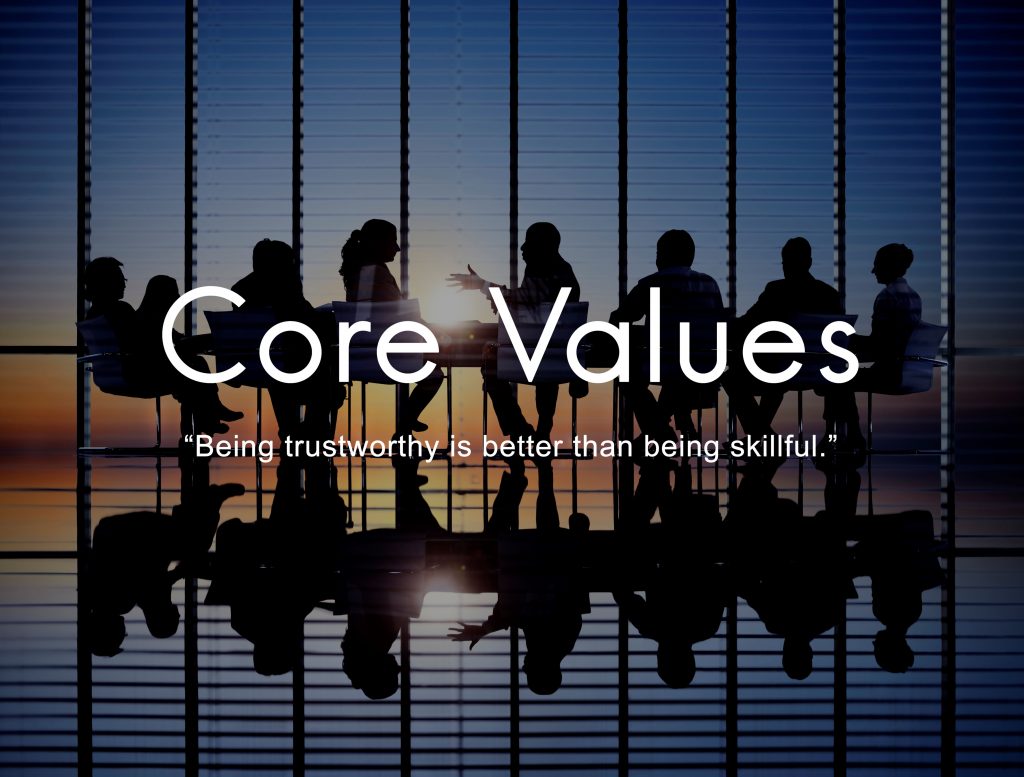Your financial plan should reflect who you are and what matters most to you. By aligning your money management with your core values, you create a more meaningful and fulfilling financial life.
Here’s how to make your financial plan match your personal principles:
Identify Your Core Values

As you consider help with financial planning, start by clarifying what’s truly important to you. Reflect on what brings you joy and fulfillment.
Consider the causes you care about deeply and how you want to spend your time and energy. Think about the kind of legacy you want to leave.
List your top 5-7 core values. These might include family, health, creativity, learning, adventure, or community. Be specific about what each value means to you.
Assess Your Current Finances
Take stock of your financial situation. Review your income sources, expenses, spending patterns, assets, and debts.
Look at your insurance coverage, investments, and retirement accounts. Identify areas where your money use aligns with or contradicts your values. Look for opportunities to better align your finances with your principles.
Set Value-Driven Financial Goals
Create financial goals that support your core values. If family is a top value, you might aim to build an emergency fund to protect loved ones.
For those who prioritize learning, budgeting for courses or travel that expand your mind could be key. Make your goals specific, measurable, and time-bound. Prioritize them based on your values.
Create A Values-Based Budget
Design a spending plan that reflects your priorities. Allocate more money to areas that align with your values. Cut back on expenses that don’t serve your principles.
Leave room for both necessary costs and value-driven choices. This approach ensures your day-to-day financial decisions support what matters most to you.
Invest According To Your Beliefs
Choose investments that match your ethics and goals. This might include socially responsible mutual funds, environmental, social, and governance (ESG) stocks, or community investment options.
Research options thoroughly. Ensure your investment strategy still provides proper diversification and returns.
Plan For Meaningful Experiences
Budget for activities and purchases that truly matter to you. This could include family vacations, skill-building workshops, or tools for a fulfilling hobby.
Prioritize experiences over material goods when they align with your values. This approach often leads to greater long-term satisfaction.
Build A Value-Focused Career
Seek work that resonates with your beliefs and passions. This might mean changing to a more fulfilling job or starting a values-driven side business.
Consider negotiating for a better work-life balance or pursuing additional education for career growth. A career aligned with your values can boost both financial and personal satisfaction.
Give Back Meaningfully
Incorporate charitable giving into your financial plan. Choose causes that deeply matter to you. This could involve regular donations to favorite nonprofits or volunteering your time and skills.
Consider setting up a donor-advised fund or planning for charitable bequests in your estate.
Tips For Successful Financial Planning

Here is how you can begin being a little more responsible with your financial plans.
1. Start Early To Give Yourself More Time
Ever heard the expression, “The best time to plant a tree was 20 years ago, but the second-best time is now”? The same goes for financial planning. The earlier you start, the more your money can grow and compound.
So why wait? Even if you’re starting small, it’s never too early or too late to set aside some of your income for the future.
Just think, where do you want to be financially in 5 years? How about in 10 years or even 20 years? When you start early, you give yourself some powerful time that can be your best friend when it comes to multiplying your money quickly.
2. Be Realistic
It’s great to have financial goals for yourself, but be sure they are also attainable. If you’re constantly chasing a goal that is impossible to meet, you’ll do nothing more than frustrate yourself in the end.
For instance, if you want to save $50,000 this year on a salary of $40,000 per year and not change your current lifestyle at all, that isn’t going to happen. Instead, set realistic steps for reaching your ultimate goal and celebrate when you hit each one along the way.
3. Seek Professional Advice
Feeling lost? There’s no shame in asking for help. Financial planning can be complicated and confusing, and hiring a professional to assist you is a great way to gain confidence in your plan. Are you investing as much as you could be? Is your tax bill higher than it needs to be?
Can you do more with your resources? A financial planner can address these concerns and many others that might arise, from figuring out how to retire when you want to decide how much life insurance is enough or what steps need to be taken after the death of a loved one.
Having an expert on call is particularly useful when trying to use money as a tool to get the most out of life.
4. Automate Good Habits
Imagine waking up to find your savings account has grown overnight. You haven’t had to do anything. That’s the magic of automation.
By setting up automatic transfers from checking to savings or direct contributions to your retirement or investment accounts, you’ll be building good financial habits without even thinking about it.
And if all your saving and investing goals are on auto-pilot, you won’t need any willpower at all because a single decision will take care of it for you. This is one of the most effective ways I know of to maintain discipline.
5. Educate Yourself
Your best defense to making well-informed decisions is to educate yourself. Are you staying current with financial trends and opportunities that may affect you?
The more knowledge you possess, the better prepared you will be when it comes to taking action with your finances.
It could be learning about socially responsible investments that match your values or how compound interest actually works. Knowledge enables better decision-making on your part and helps alleviate any concerns or fears you may have.
Read articles, attend webinars, or listen to podcasts just like these so that you can continually tweak and improve upon what’s already working.
By aligning your financial plan with your core values, you create a more purposeful and satisfying relationship with money.
This approach leads to better financial decisions and a deeper sense of fulfillment in your financial life. Remember to stay flexible and adjust your plan as life changes occur.
Read Also:






















